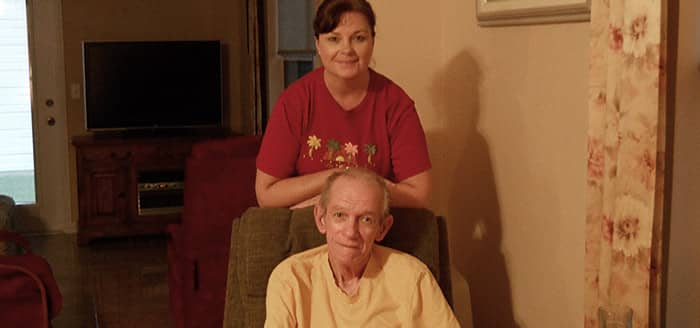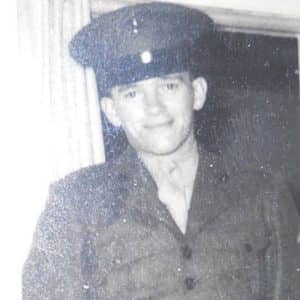Pipefitter’s Daughter Spreads the Word Daily About Asbestos and Mesothelioma

“My dad died far too young in my opinion,” Sandra Nobles Clark recently told the Mesothelioma + Asbestos Awareness Center. “He was 73 years young with a lot of life to live.”
However, the cancer did not care. A longtime pipefitter when he was younger, the job that helped Charles Nobles put food on the table for his family was the thing that ended up killing him and leaving those family members behind.
“It makes me sad that he has two great-grandchildren he will never know,” Sandra said. “He was not there for my son’s wedding. He is sorely missed.”
Now, Sandra is doing everything she can to get out her father’s story so that other families don’t have to go through the hard times that she and her family have experienced. “I still have anger in me about the use of asbestos,” she told MAA Center, explaining the drive behind her mission.
“My dad always told me do what you think is right. Stand up for what you believe in. Do all you can and it will be enough. Help people when they need it,” Sandra recalled. Those morals are what she draws on now to help her in getting the word out about the dangers of asbestos and the horrors of mesothelioma, a rare form of cancer caused by inhalation of asbestos fibers. “I post articles all the time, and I am constantly reading up on asbestos and mesothelioma. I post articles on getting it banned. I try to spread the knowledge of its dangers and what it does to your body, how it tears families apart.”
Remembering a Hard-Working Father
 Charles E. Nobles was a pipefitter who specialized in sprinkler and fire protection systems. His job put him in close contact with asbestos around pipes, in ceiling tiles, and elsewhere as he worked every day to help keep people safe. Ironically, asbestos was also supposed to help keep people safe from fire – but instead, it ended up giving Charles a terrible disease and ultimately lead to his death.
Charles E. Nobles was a pipefitter who specialized in sprinkler and fire protection systems. His job put him in close contact with asbestos around pipes, in ceiling tiles, and elsewhere as he worked every day to help keep people safe. Ironically, asbestos was also supposed to help keep people safe from fire – but instead, it ended up giving Charles a terrible disease and ultimately lead to his death.
“He was a loving, hard-working, and funny man who loved his family,” Sandra described her father. “He loved boating and fishing, traveling, family dinners, golfing, bike riding and taking long walks.”
All that changed in 2008, however, when Charles was diagnosed with mesothelioma. He underwent surgery to remove his upper right and middle sections of his lung, and as a result he was unable to do many of the things he had loved doing.
“Mesothelioma changed his quality of life and his breathing to the point he could not ride his bike, golf, take long walks, fish, or go boating,” Sandra explained. “It also changed his eating habits to the point where he barely ate anything. He could not do many of is favorite things, as he would be out of breath very easily. He also had a hard time taking a shower because he could not take the water on his face – he felt like he was suffocating.”
There was no question about the fact that his close work with asbestos over his many years as a pipefitter on construction sites had lead to the development of mesothelioma. “He worked cutting through ceiling tiles that held asbestos,” Sandra told MAA Center. “He worked on jobs where other workers were removing asbestos off of pipes and out of walls. My dad called it a dustball of asbestos. Even wearing a mask did not help.”
At home, Sandra’s mother would wash her father’s clothes separately from the rest of the family’s laundry, due to the amount of asbestos dust on them. Secondhand exposure to asbestos is a growing concern as more and more children of construction and factory workers are developing mesothelioma decades after their fathers, uncles, or other family members would carry asbestos home with them on their clothes.
Sandra’s Advice to Others
For those who work in construction or another job where asbestos exposure may occur frequently – or even occasionally – Sandra has some advice.
“I suggest keeping clothes separate and wearing a plastic shield over your face instead of a mask,” she said. “They did not have plastic shields when my dad was working. I also suggest getting yearly chest X-rays.”
Other things that individuals can do include signing a petition to ban asbestos and calling your congressional representatives. The more people who speak up, the more likely this dangerous substance will be banned.